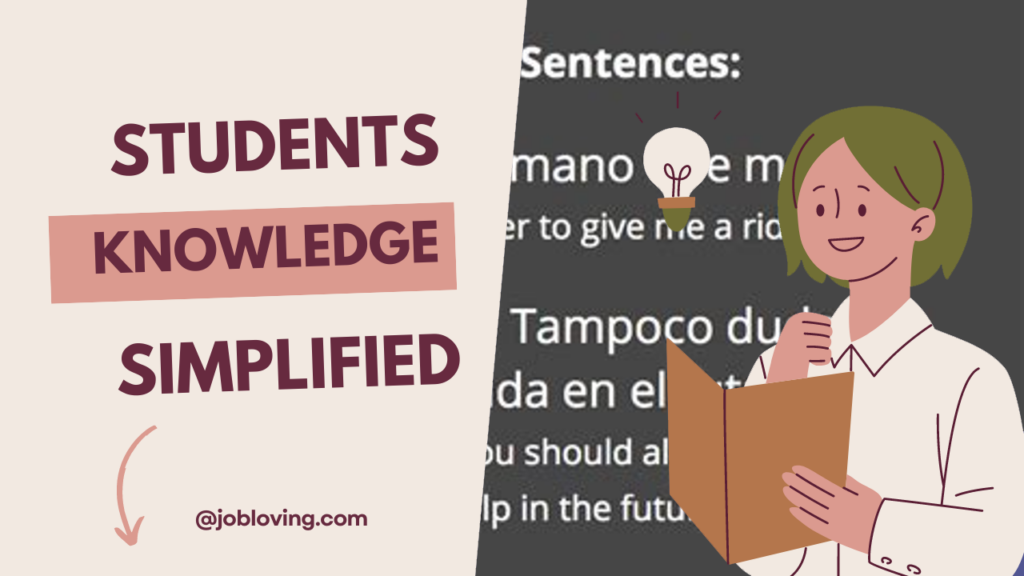How to Ask Someone What They Study in Spanish: A Comprehensive Guide
When trying to connect with someone in a Spanish-speaking environment, one of the most engaging and insightful questions you can ask is, ¿Qué estás estudiando? or simply, ¿Qué estudias?. Both phrases translate to “What are you studying?” in English, and they open the door to enriching conversations about academic pursuits, professional aspirations, and shared interests. However, understanding how to frame this question properly requires navigating through various regional nuances, educational systems, and cultural contexts. Buckle up as we delve into all the intricacies involved in this simple yet impactful inquiry!
Understanding Educational Systems and Regional Differences
Asking someone about their studies is not always straightforward, especially in the vast and varied landscape of Spanish-speaking countries. Educational structures differ substantially between regions, leading to unique terminologies and expectations. Here are some key aspects to consider:
- Regional Terminology: Different Spanish-speaking countries may use alternate words or phrases to describe educational pathways. A good example is how a university major, called carrera in many Latino countries, might differ in context from the English concept of “major.”
- Forms of Education: In Latin America, students typically pursue specialized programs directly after high school, skipping over general education requirements often seen in places like the United States.
- Postgraduate Degrees: The most common postgraduate degree in Latin America is specialization, often pursued after a first degree. In contrast, master’s and doctoral degrees follow but may not carry as much employment weight in certain fields.
- Medical Education: Fields like medicine emphasize specialization early on, which could make phrases like ¿Cuál es tu especialidad? more relevant when discussing academic achievements in this context.
These factors underline the importance of adapting your inquiry based on the individual and their unique educational background.
Key Questions and Their Meanings
Navigating through Spanish academic terminology can seem daunting at first, but let’s simplify it! Here’s a brief overview of practical and contextually appropriate questions you can ask:
- ¿Qué estás estudiando? – “What are you studying?” An ideal opener for current studies.
- ¿Qué estudiaste? – “What did you study?” Perfect for discussing past education.
- ¿Cuál es tu carrera? – “What is your major?” Gem when talking with someone studying in the U.S. or familiar with that terminology.
- ¿Cuál es tu especialidad? – “What is your specialty?” Useful for medical or specialized fields.
- ¿Qué carrera estudias? – “What degree are you pursuing?” A flexible question applicable in various contexts.
Feel free to pick and choose which phrase fits your conversation best!
What’s in a Name? Understanding the Nuances
Contemporary language learning often causes confusion with direct translations from English to Spanish. Recognizing this can help bridge understanding gaps:
- Educational Structure: In a U.S. context, one might select a major and a minor. In Latin American countries, students generally pick a singular pathway as they enter college, making the terms utilized by the aforementioned questions extremely important.
- Cultural Perceptions: Asking about someone’s major may convey a sense of formality or depth in academia that isn’t as pronounced in other regions. Contrastingly, a more casual inquiry like ¿Qué estudias? might reflect a genuine interest in the person rather than a superficial academic evaluation.
- Avoiding Pitfalls: Misinterpretation of terms can lead to confusion when conversing about studies. Spanish-speaking students often follow paths that don’t align with U.S. educational models, making it a challenge for non-natives to navigate. Understanding local terminology is key to effective communication.
Enhancing Conversations through Study-Related Queries
Asking what someone studies is more than just filling social silence; it’s a chance to deepen connections and explore common interests. Here are a few reasons why engaging inquiries surrounding education can enrich your social life:
- Network Building: Casual conversations can turn pivotal for budding academic collaborations or friendships.
- Shared Interests: Discussing studies often paves the way for finding mutual passions and related hobbies.
- Cultural Understanding: Through academic dialogues, you’ll gain insights into different viewpoints, which can only foster empathy and broaden your horizons.
- Language Skills: Engage actively in inquiries about studies, incorporating new vocabulary, which can boost confidence in your conversational Spanish.
- Showing Interest: Simply asking about someone’s academic pursuits is often seen as a genuine sign of interest and investment in their lives.
Common Concerns When Asking about Studies
Despite the enthusiasm surrounding academic inquiries, non-native Spanish speakers often face apprehensions when initiating these discussions. Here are common concerns and how to overcome them:
- Fear of Mistakes: Many learners hesitate to speak Spanish because of anxiety over making errors. Remember, practice makes perfect, and most Spanish speakers will appreciate your effort to engage in their language!
- Grammar Worries: Conjugations may feel intimidating; however, focusing on basic phrases helps ground your conversations. Stick to straightforward queries as stepping stones to fluency.
- Cultural Sensitivity: Understanding the regional context surrounding education reinforces both the strength and relevance of your question. Tailoring your inquiries helps avoid awkward moments.
Conclusion: Connecting through Studies
Engaging someone in conversations about their academic journey can ignite fascinating discussions, spark collaborations, and build meaningful relationships. As you venture through the captivating world of Spanish language and culture, remember that asking “What are you studying?”—¿Qué estás estudiando?—is not just a question. It’s an invitation to a deeper dialogue shaped by curiosity, mutual understanding, and shared experiences.
So, whether you’re catching up with classmates, mingling with locals during your travels, or networking at an international conference, don’t shy away from exploring the educational pathways of those around you. They might just unveil worlds of knowledge and insights that you hadn’t considered before. Ultimately, asking about studies in Spanish is about more than academics; it’s a celebration and exploration of what makes each person uniquely fascinating!
So go on! Break the ice and dive into the conversation with confidence. Happy chatting!

